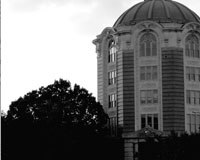
Woman in Tableaux
To Paint
[middle]: My Life, chapter 3
– Vivre sa vie, Jean-Luc Godard
A street, thick-shadowed and mostly empty, with record shop, apartment, cafè, theater, is no real match for innocence. What she sees on the screen burns to the bone – Jeanne D’Arcin a fit of perfection or grief, not able to bend, not willing to stop, can’t help but question everything she touches, everything she wants – body and soul, body and soul. She gives herself only to herself, and finds that deliverance sometimes is no deliverance at all. You may believe in lines, but there aren’t any. Truth is nothing more than spirals of beauty and lust, essence and moment. Running like mad over the stiff mechanics of all things opposite, she lives simply because she says she lives, her words finding her at last – or should I say “at beginning” – finding her where she has always been.
[end]: My Say
– An Angel at My Table, Jane Campion
In the ship’s long wake – in back of eight slow years of crowded wards with electrodes, in a role, in a willing trap for empty pages to fill – in the hush of wind and sea from Auckland to London to Spain, there’s no pity, no sentimental hogwash. It’s the body you ache to know, the you you will the self to find – from first words to something real.
There was a missing, surely – a dark hole, something to want.
Sheep still graze the wet, steep hills, a world that never stopped its beautiful plundering.
Always a third person, a they or a she – you breathe in the wild, finally, and the thinnest line of happy finds the corners of your mouth. You type away into the unmoving darkness – an I, a me.
[beginning]: A Restless Moment
– Fa yeung nin wa, Wong Kar-Wai
Mirrors never lie. Plucked rhythms underneath the voiced violin whisper and whisper their missed chances to the rain.
She’s always stepping out – up and down stairs, along the street, a noodle thermos swaying in her hand, thin wisps of smoke, those slow, delicious walks she can’t resist, the narrow hall awash in red – a shoulder, a touch, unspoken words.
I wonder how it all began, she says, those lush nights of betrayal, all the hidden spaces for handbag and tie, and how we came to know. We won’t be like them – we love to eat – that’s what we do, that’s all we do.
The opened window ripples a hot curtain – in the room tucked away for writing, for the story never written, for the eyes, glancing away a last time to find some meaning, some purpose, lost in silence.
No. 18 (1948)
– after Mark Rothko
Start with unholy terrors in dabs
of orange & ochre & blue. Learn
to multiform the vain tragedies of
a waking life –
with wicked smiles,
all toothy and impossible to resist –
in blocks, empty of myth, symbol
or place.
Let go your name to razor
and pill. Who could miss such a thing?
It’s science run amuck. Find a window
to the fevered world –
a starless edge,
an end of nothing, to nothing still.
Sam Rasnake’s works, receiving five nominations for the Pushcart Prize, have appeared in OCHO, Wigleaf, > kill author, Big Muddy, BLIP, Literal Latté, Poets / Artists, fwriction : review, MiPOesias, Portland Review, Best of the Web 2009, BOXCAR Poetry Review Anthology 2, and Dogzplot Flash Fiction 2011. His latest collections are Lessons in Morphology (GOSS183) and Inside a Broken Clock (Finishing Line Press).

